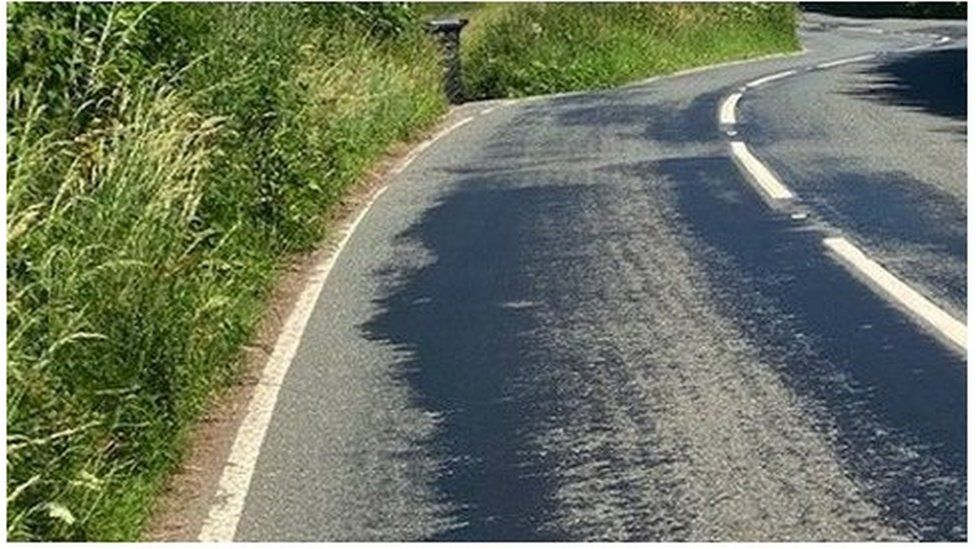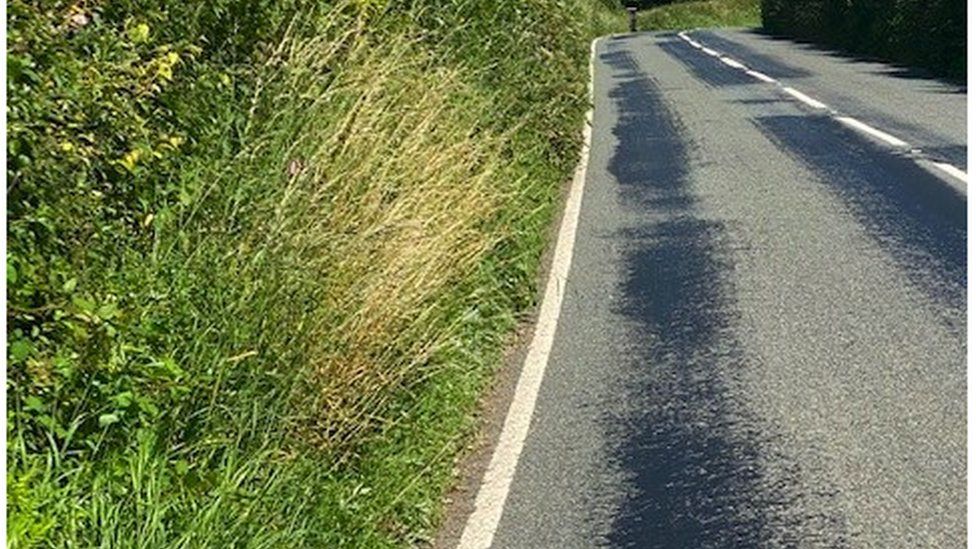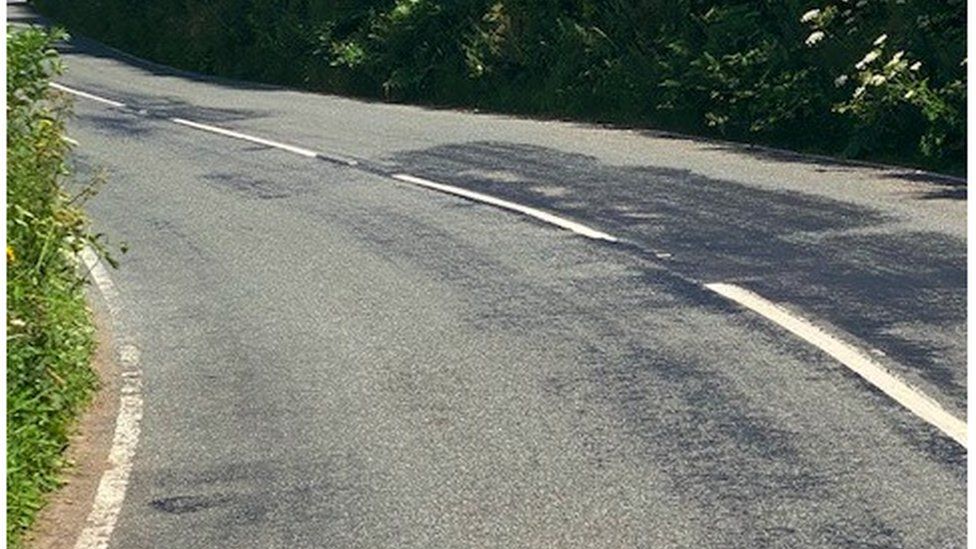
Hot weather has started to melt the surface of some of the roads in around the UK
Routes across Exmoor near the villages of Exford and Timberscombe, and the town of Dulverton have been affected.
Highways teams have been spread granite dust on melting stretches to absorb the soft bitumen and to stabilise the surface.

“We will continue to monitor the situation over the next few days.” the council’s highways staff wrote on social media accoiunts.
Hot rolled asphalt includes 5% polymer binders that are capable of absorbing up to 80C, but these are more expensive.
The team said maintaining the road’s surface was particularly problematic in countries that experienced the two extremes of weather.
“Think of the Asphalt like chocolate – it melts and softens when it’s hot and goes hard and brittle when it’s cold. As a result, it doesn’t maintain the same strength all year round.”

Some of the worse effected roads in the UK are the B3224 from Luckwell Bridge to Thorne Lane (towards Exford), the A396 from Wheddon Cross to Thorne Lane (towards Dulverton) and the A396 Avill Staight to Cowbridge (Timberscombe).
At ground level, in prolonged direct sunshine, black asphalt absorbs heat and the temperature can quickly reach melting point. Other variables include the paving grade of the bitumen, how heavily trafficked the road is, and whether it is a major road or a minor route in a rural area.
A yellow weather warning for rain has been issued as the current heatwave for much of the UK breaks up into more unsettled weather over the weekend.
The yellow warning for rain covers central and southern parts of England and Wales and will be in force from early on Saturday to midnight on Sunday.